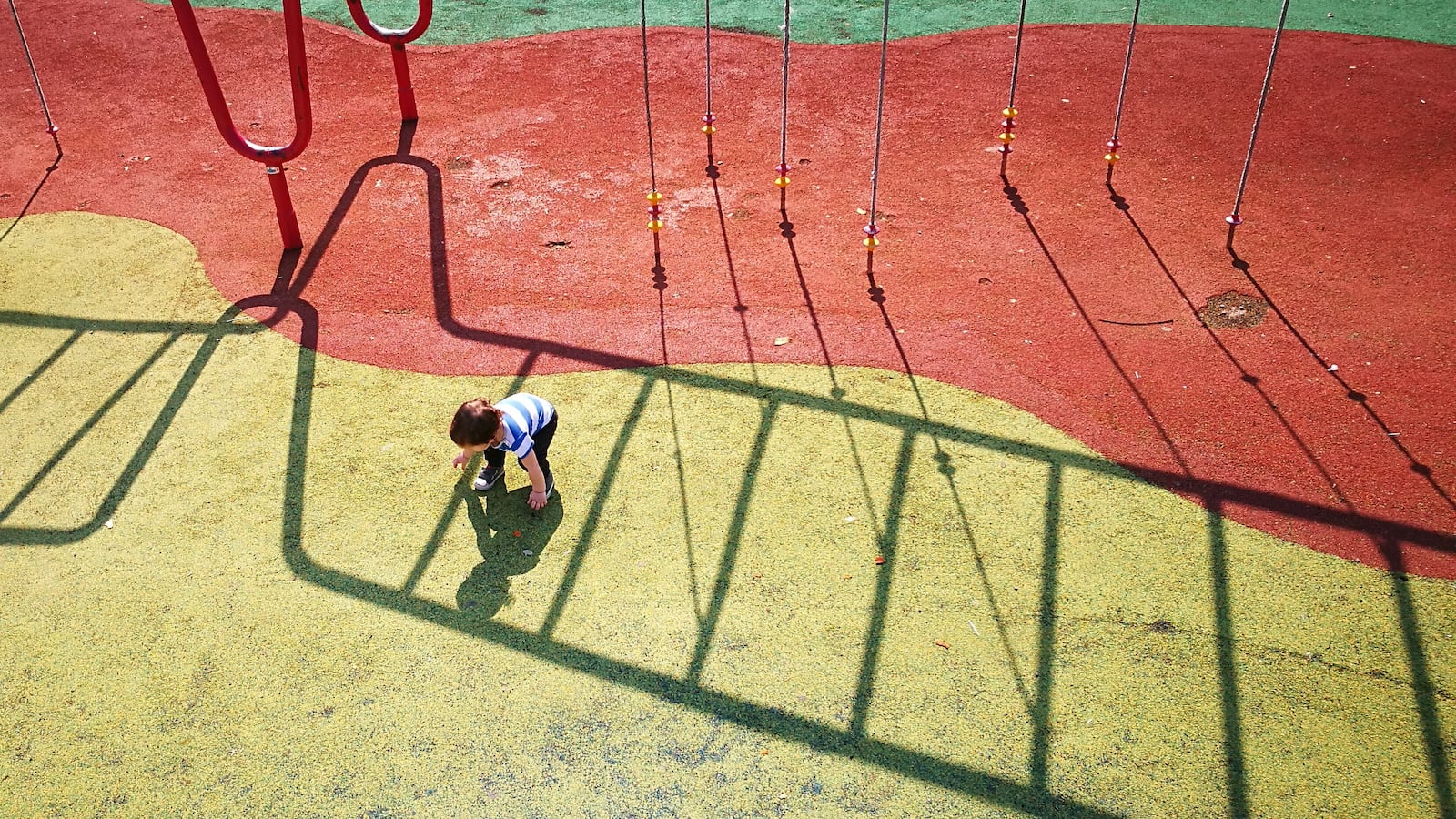Chicago Mayor Rahm Emanuel has clearly articulated his vision for a free, universal prekindergarten program for 4-year-olds in Chicago, staging events throughout the summer to spread the word. On Thursday the mayor stood at a playground to announce the expansion of an early childhood program at Passages Charter School in Edgewater.
The announcement coincided with a data release today by Chicago Public Schools that shows promising early results from its preschool programming. Third-graders who attended CPS-run prekindergarten in 2012-2013 showed slightly higher GPAs (of 0.09), better attendance (by approximately 1.6 days), and a 3 percentile point increase in math and reading scores on the national NWEA exam compared with children with no known pre-K education.
“As an educator, I know that nothing is more important than getting kids into school earlier,” said Chicago schools CEO Janice Jackson, referencing the results today.
Passages Charter, which is operated by Asian Human Services, will more than double capacity in its early-childhood program by September, going from two preschool classrooms that each serve 20 students to five that serve up to 100. The center will also include a family room where parents — many of whom are refugees — can learn English and help each other navigate life in a new country. Passages already runs a similar program in the West Ridge neighborhood, near the intersection of Peterson and California, said Cindy La, director of education for Asian Human Services.
“We’re teaching them English, but we’re also talking about what it means to go to the doctor, or go to the post office. Even things like over-the-counter medications can be unfamiliar,” said La. Having the parents in the same building as the children helps provide support for the whole family and reinforce education in multiple generations.
Her boss, Asian Human Services CEO Craig Maki, made a similar point. “We want to make the building a community building where we take care of families.”
The announcement tour highlights what makes the mayor’s pre-K plan so intriguing — and complicated: the constellation of providers the city must lean on to offer universal pre-K for all 4-year-olds regardless of their family income, a goal Emanuel aims to reach by 2021. All in, the program will cost $175 million. Walls are being knocked down to build capacity at neighborhood schools like Lazaro Cardenas Elementary in Little Village and Dore Elementary in Clearing as well as charters such as Passages.
The city also is doling out grants to expand capacity at community-run centers such as Gads Hill Center in Brighton Park and small businesses, such as Little Angels Learning Center in Englewood. Some of the spending for pre-K construction and expansion projects will be funded by the new $1 billion capital budget that the Board of Education passed in July.
Phase one of the pre-K rollout starts this fall, with the city promising spots for 3,700 additional children from families that make less than $46,000 through a menu of programs housed at traditional CPS schools, charters, and community centers. Ultimately, parents who apply for the spots can fill out one application and find a menu of options depending on where they live. The common application is open on a City of Chicago-run early learning portal, but it is several pages long and can be confusing in parts. There’s more work to be done to streamline it and make it easier for families, said Samantha Aigner-Treworgy, the mayor’s chief of early learning.
La, of Passages, said some families were not comfortable using the online portal yet, so they had received 45 paper applications for their expansion spots this fall. Currently, their program serves 3- and 4-year-olds: some spots are free and funded by Head Start, others are funded by a matching state grant and on a sliding fee scale. The most any family pays is $350 per month.
The timeline to be ready by the time classes resume in September is so tight that, at Passages, the construction workers were already at work before the morning press conference started. They paused in the parking lot to wave attendees to a tiny playlot behind the school and started up their drills and saws again as soon as the crowd began to disperse. A fixture in the neighborhood, the stately brick building at the corner of Bryn Mawr and Ashland avenues once housed the city’s first coed Catholic high school, St. Gregory the Great High School, before the Archdiocese of Chicago closed it in 2013.

